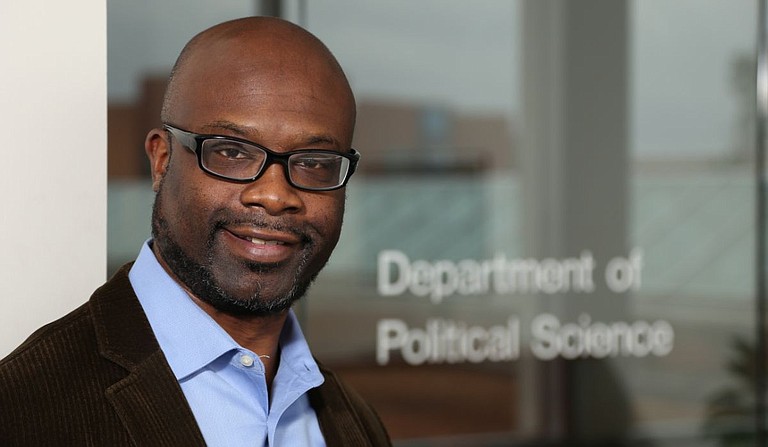Jackson State University political science professor D’Andra Orey (pictured) will serve as the principal investigator for the research, while JSU political science alum Najja Baptist serves as co-principal investigator of the grant. Photo courtesy JSU
Friday, January 14, 2022
The National Science Foundation recently gave Jackson State University political science professor D’Andra Orey a $509,000 multi-year grant for research exploring the intersection of race, exposure to trauma and politics on urban residents compared to individuals residing in rural areas. Orey will serve as the principal investigator, while JSU political science alum Najja Baptist serves as co-principal investigator of the grant.
Current research reveals that exposure to traumatic events like the 9/11 attacks or the Boston marathon bombing challenges a person’s mental health, a release from JSU says, but said research does not distinguish among Blacks and whites or the impact of traumatic exposure on Black individuals’ political attitudes and behavior.
Orey's team argues that there is little if any literature that bridges mental health and the political leanings of Black citizens, even though they tend to experience a unique cumulative trauma that likely influences their psyche, the release says. The researchers plan to examine the exposure of COVID-19 related news alongside the shootings of unarmed Black civilians and its cumulative impact on Black individuals’ mental health.
The research team will further examine how subjection to racially and non-racially traumatic events affects mental distress and the correlation between mental suffering as it relates to trauma and the concept of insulation, as well as how Black and white people manage trauma.
Partner institutions on the project include Mississippi Valley State University, the University of Michigan and the University of Arkansas. For more information, visit jsums.edu.
MSU Joins CYBERCOM Research Network
The United States Cyber Command, also known as CYBERCOM, recently selected Mississippi State University and 84 other institutions nationwide to take part in a new Academic Engagement Network.
CYBERCOM is a joint command center of the U.S. Department of Defense that directs, synchronizes and coordinates cyberspace planning in collaboration with domestic and international partners to defend and advance national interests, a release from MSU says. Participating universities will support CYBERCOM efforts in areas such as future workforce, applied cyber research and applied analytics.
MSU holds all National Security Agency designations as a center of academic excellence in cyber defense, cyber research and cyber operations and leads the fourth largest National Science Foundation Cybercorps program in the U.S. The university also offers an undergraduate program in cybersecurity, a master’s program in cybersecurity and operations and two certificate programs.
For more information on U.S. Cyber Command’s Academic Engagement Network, visit https://www.cybercom.mil/Partnerships-and-Outreach/Academic-Engagement/.
USM Launches Center for Digital Humanities
The University of Southern Mississippi recently launched its new Center for Digital Humanities, which began development in November 2019. The center supports existing faculty work in digital humanities, expands current course offerings and adds a new tenure-track professorship in digital humanities, a release from USM says.
USM's Center for Digital Humanities is housed in the School of Humanities and serves as an interdisciplinary research center with support from a Carnegie R1 institution. The center has faculty affiliates in Computer Science, Geography and the Ecospatial Lab, as well as Cook Library’s Digital Lab.
The Center for Digital Humanities includes 20 interdisciplinary faculty working across campus and collaborating on DH projects and grants. The CDH team also partners with the Mississippi Department of Archives and History and the Mississippi Digital Library.
More information, visit https://www.usm.edu/digital-humanities.

Comments
Use the comment form below to begin a discussion about this content.
Sign in to comment
Or login with:
OpenID